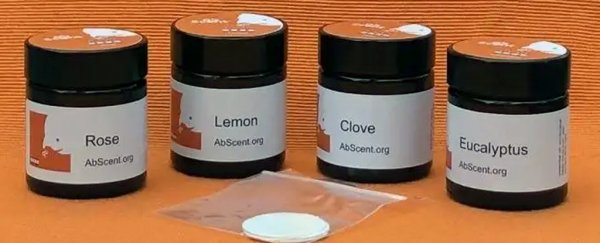A growing number of people who lost their smell during the COVID-19 pandemic and haven't been able to get it back are now turning to "smell therapy."
Anosmia, or loss of smell, was first recognised by the Centres for Disease Control (CDC) as an official COVID-19 symptom in April alongside the loss of taste.
Both affected hospitalized coronavirus patients as well as those who had a mild form of infection or showed no other symptoms.
But while many recovering COVID-19 patients have since regained their ability to smell, others haven't been as lucky. Now, charities and other organisations that offer "smell therapy" report a dramatic uptick in interest.
"At the moment, we are probably three times the membership that we were before COVID-19 hit," Chrissi Kelly, the founder of AbScent, a UK charity that helps people who suffer from smell loss, told Business Insider.
"I first noticed the interest in March when people suddenly started contacting me on social media, first from Iran, then Italy, and then Spain," Kelly said. "Now we have over 7,000 members in our [Facebook] groups."
While not a cure, smell training is a form of physiotherapy for the nose. It requires you to work with four essential oils – rose, lemon, clove, and eucalyptus – to stimulate and amplify the nerves in your nose that are responsible for smell.
For it to be effective, recovering patients are advised to sniff each bottle for up to 20 seconds, twice a day, for a minimum of four months, according to Kelly.
The AbScent founder stressed that the essential oils could be swapped for anything (i.e. shoe polish, coffee, or other spices), and that smell kits can easily be created at home.
"You just need to get people to really focus and concentrate on what they're smelling, for it to work," she said.
"My smell is still completely gone"
Freya Rosedale, 24, from London, told Business Insider that she keeps perfume by the side of her bed so when she wakes up every morning, she can check to see whether her smell has returned.
The 24-year-old lost her sense of taste and smell in March when she "very suddenly" noticed that she couldn't smell or taste the bacon she was frying in her kitchen one morning. She had not been displaying any other symptoms.
"When I took a bite, it was quite horrible…there was just nothing. It made me really aware of texture which never bothered me before," she said.
Four months on, Rosedale says she is able to taste her food again but still hasn't been able to smell anything.
"My smell is still completely gone. It comes back a couple of times but only for about 15 minutes and then it goes again," she said. "It's not as upsetting as the taste because I love food and not being able to enjoy eating was a big issue for me. Now, it's more of a hindrance and just a bit annoying."
Almost 90 percent of COVID-19 patients with anosmia recovered within a month
According to a study from Italy published earlier this month, 49 percent of patients had fully regained their sense of smell or taste and 40 percent reported improvements. Another 10 percent had persistent smell loss that lasted for months.
While the understanding of COVID-19 is still developing, researchers are starting to understand what causes anosmia in coronavirus patients in the first place.
In an article in The Conversation, Dr. Jane Parker, an associate professor of flavour chemistry at the University of Reading, and Dr. Simon Gane, a rhinologist at the University of London explained that people who recover more quickly from anosmia most likely had inflammation at a local level, otherwise known as "cleft syndrome."
It means that the olfactory cleft – the part in your nose responsible for smell – is obstructed by swollen tissue and mucus, and therefore, blocks any aroma from reaching it. However, this can be fixed in weeks, and once a patient's swelling goes down, the pathway to their olfactory neurons opens up again.
People who are having long-term smell problems most likely had an aggressive inflammation which can cause nerve or tissue damage, according to the article. However, like many nerves, this can be regenerated with smell training, and "the chances are good," according to Kelly.
"It [the training] is amazingly effective. You can do amazing things with your sense of smell, whether you are a healthy person or a recovering person," said Kelly.
Clinical trials have shown that patients who used the training did better in identifying and discriminating between smells than people who did not.
The emotional impact loss of smell can have on patients is huge: A recent study in the UK exposed high rates of depression and anxiety among the anosmic population.
That's why it's so important to stick with smell therapy.
"For a lot of people who lost their sense of smell, they stop being curious about smell," said Kelly. "You must remain curious about smell and continue to look for smell in your day to day life and that's so so important."
This article was originally published by Business Insider.
More from Business Insider:
